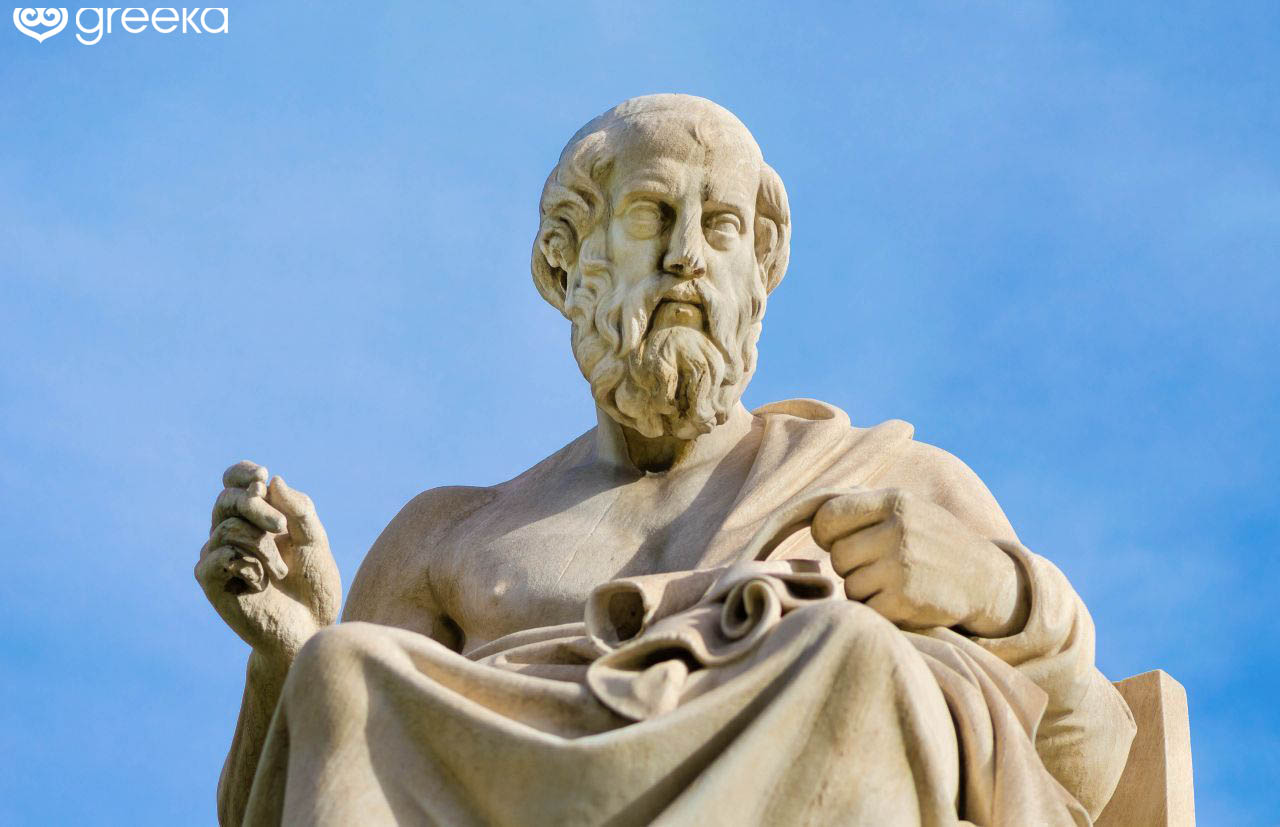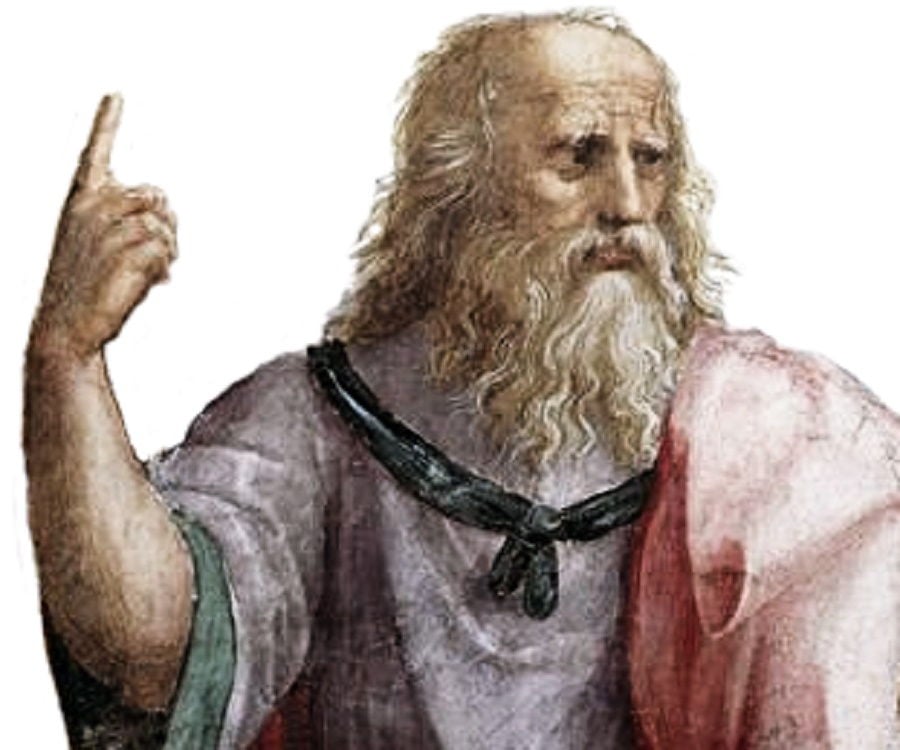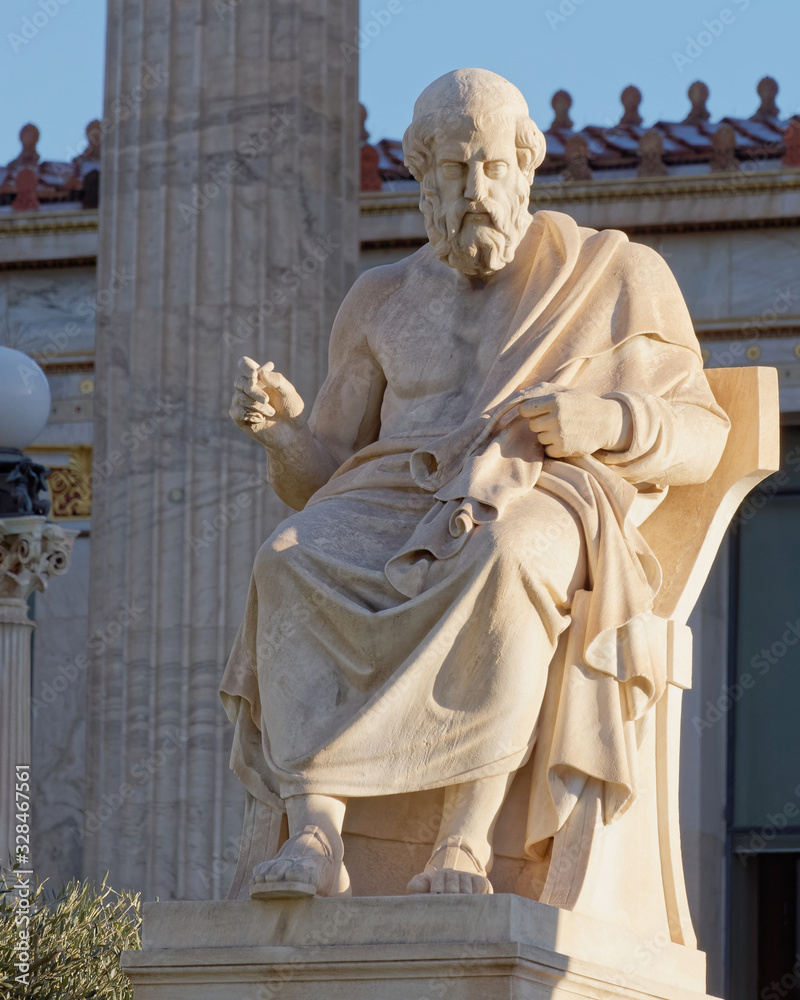When we think about the thinkers who really changed how we look at the world, one name that pops up again and again is Plato. He was, you know, a truly central person in the whole story of what we call Western philosophy. It's almost like he was one of the big three, standing right there with his teacher, Socrates, and then his own student, Aristotle. Their ideas, in a way, really set the stage for so much that came after, shaping how people thought about, well, just about everything.
It's pretty incredible to think that writings from someone who lived so long ago are still around for us to read. Plato's entire collection of works, every single piece he put down on paper, is believed to have survived for over two thousand four hundred years. That's, like, a really long time for ideas to stick around, don't you think? It means what he had to say must have been pretty powerful, pretty important, for it to last through so many generations and still be talked about today.
So, we're talking about a thinker whose thoughts still resonate with us, whose writings are still studied in schools and universities across the globe. His contributions, you see, are not just dusty old texts; they are, in some respects, living ideas that continue to spark conversation and challenge us to think deeply. This makes exploring his many achievements quite a fascinating thing to do, actually.
Table of Contents
- Plato's Life and Background
- What Makes Plato's Achievements Stand Out?
- How Did Plato's Dialogues Shape Thinking? Plato Accomplishments
- Plato's Accomplishments in Shaping Ideas About the World
- Did Plato's Ideas About Society Still Matter?
- Exploring Plato's Accomplishments in Political Thought
- Why Do We Still Talk About Plato's Achievements Today?
- The Enduring Impact of Plato's Accomplishments
Plato's Life and Background
Plato, who was born around 428 or 427 years before the common era in Athens, Greece, was, you know, a very influential person from ancient times. He passed away in Athens too, sometime around 348 or 347 BCE. He was, actually, a student of a very well-known thinker named Socrates. This connection to Socrates is quite important because it really shaped so much of what Plato would go on to do and write. He picked up a lot from his teacher, and then he found his own way to share those ideas, often through the written conversations he created.
Plato wasn't just a student, though; he also started his own place for learning, which he called the Academy. This institution, really, was a big deal, as it became a very important center for deep thinking and teaching. It's pretty amazing to think about, that he created a place where people could gather to discuss big ideas and learn from each other. This was, in some respects, one of his truly significant contributions, creating a space for intellectual growth that would last for a very long time.
He was, in fact, the person who put down on paper many philosophical works that have had an influence on Western thought that's, like, pretty much unmatched. His writings often took the form of dialogues, which are, you know, conversations between different people. Often, his teacher Socrates would be a main character in these discussions, talking with various other individuals who represented different viewpoints. This way of writing, it turns out, made his ideas very engaging and accessible for people to consider.
Personal Details and Bio Data
| Full Name | Plato |
| Birth Year | Around 428/427 BCE |
| Birthplace | Athens, Greece |
| Death Year | Around 348/347 BCE |
| Place of Death | Athens, Greece |
| Known For | Ancient Greek philosopher, founder of the Academy, author of philosophical dialogues |
| Teacher | Socrates |
| Student | Aristotle |
What Makes Plato's Achievements Stand Out?
When we look at what Plato did, it's pretty clear that his work really stands out. He wasn't just someone who thought about things; he put those thoughts into writings that have, quite honestly, shaped how people have understood the world for thousands of years. His writings, which are mostly in the form of dialogues, are, you know, truly unique. They're not just dry academic papers; they are, in a way, like watching a play where different characters discuss very big ideas. This style makes them very approachable, even for difficult topics.
One of the things that makes his work so special is how widely it has been felt. His ideas, you see, have touched on so many different areas of human thought. From thinking about what reality truly is, which we call metaphysics, to how we should live our lives, known as ethics, and even how societies should be run, which is political theory, his thoughts have been, in some respects, foundational. This broad reach is a big part of why his achievements are so remarkable, actually.
He also, very importantly, created a place for learning that was, like, a first of its kind. The Academy he founded was not just a school; it was a center where people could come together to explore deep questions. This act of creating an institution dedicated to inquiry and teaching was, pretty much, a very significant step for intellectual life. It shows that he wasn't just interested in thinking for himself, but also in fostering a community of thinkers. That, in itself, is a huge accomplishment.
How Did Plato's Dialogues Shape Thinking? Plato Accomplishments
The way Plato chose to write his philosophical works, through dialogues, was, you know, a pretty clever move. Instead of just stating his ideas as facts, he presented them as conversations. This means you get to see different points of view being discussed, argued, and sometimes even changed. His teacher, Socrates, often leads these discussions, asking questions that make the other characters, and us, the readers, really think hard about things. It's a bit like being in a classroom where everyone is trying to figure things out together.
These dialogues are, arguably, what made his philosophical ideas so accessible and so influential. They allowed for the exploration of complex topics in a way that felt more natural, more human, than a straightforward lecture might have. For example, when he talked about justice or what an ideal state might look like, he didn't just tell you; he showed you people trying to work it out through conversation. This approach, you know, really helped his ideas stick with people and spread widely, contributing greatly to Plato's accomplishments.
The fact that these conversations are still read and studied today, thousands of years later, tells you something about their enduring power. They encourage us to question, to think critically, and to engage with big ideas ourselves, just like the characters in the dialogues do. It’s, in a way, a timeless method for exploring truth, and it's a key part of why his influence has been so strong, contributing to the many Plato accomplishments we recognize.
Plato's Accomplishments in Shaping Ideas About the World
Plato didn't just talk about abstract ideas; he also thought about the very basic building blocks of our physical world. For example, he considered the four main elements: fire, air, water, and earth. He had this idea that these elements were, in a way, made up of different arrangements of triangles. He believed that by combining these triangular shapes in various ways, you could create what he called the "body" of things, meaning the physical stuff around us. This was, you know, a pretty interesting way to think about how everything is put together, very much a part of Plato's accomplishments.
This kind of thinking, trying to figure out the fundamental nature of reality, shows just how deeply he explored ideas about the world we live in. He wasn't content with just surface-level observations; he wanted to get down to the core of how things work. His ideas, you know, set a precedent for later thinkers to also try and understand the underlying structure of the universe. It's a testament to his intellectual curiosity and his desire to make sense of everything, which is a big part of the Plato accomplishments we discuss.
His broader philosophical thoughts, too, have been, in some respects, foundational for what we call Western philosophy. They have influenced a truly wide array of subjects. From discussions about what is real and true (metaphysics) to how we should behave (ethics) and even how societies should be structured (political theory), his ideas provided a starting point for so many later discussions. This wide-ranging influence is, pretty much, a defining feature of Plato's accomplishments.
Did Plato's Ideas About Society Still Matter?
It's fair to ask if thoughts from someone who lived so long ago about how a society should be run still have any weight today. Plato, you know, spent a lot of time thinking about what an ideal state would look like, and what justice truly means within a community. He explored these concepts in his writings, particularly through the conversations he created. These discussions were, in a way, his attempt to figure out the best possible way for people to live together, to create a fair and good society. So, you might wonder, are these ideas still relevant for us now?
His thoughts on justice, for example, were not just simple rules; they were deep explorations into what it means for individuals and for the whole group to be in balance. He considered what would make a society work well, where everyone had a place and contributed to the common good. These kinds of questions, about fairness, about how people should interact, about the structure of a good community, are, pretty much, timeless. They are questions that people still grapple with, making his contributions to these discussions still quite important, actually.
So, while the specific details of his proposed ideal state might seem, you know, a bit different from how we organize things today, the underlying questions he posed about leadership, about fairness, and about the purpose of a community are still very much with us. His work helps us to think more deeply about our own societies and what we value in them. This enduring relevance is, in some respects, a clear sign that his ideas about society do, in fact, still matter.
Exploring Plato's Accomplishments in Political Thought
Plato's thinking about how societies should be organized and what makes a government good is, you know, a very important part of his overall contributions. He really dug into ideas about justice and what an ideal state would look like. He didn't just give us a simple answer; he explored these concepts through deep, sometimes challenging, conversations in his works. This exploration of political theory is, pretty much, one of the most widely recognized Plato accomplishments.
He considered, for example, different types of government and what their strengths and weaknesses might be. He thought about who should rule, and what qualities a good leader should possess. These discussions were, in a way, groundbreaking for their time, as they systematically approached the question of how to build a just and stable society. His insights into human nature and how it impacts political structures are, arguably, still debated and considered today, showing the lasting impact of Plato's accomplishments.
His travels, including his trips to Sicily, also seem to have played a role in shaping his views on political matters. Experiencing different political systems and interacting with various leaders likely gave him practical insights that informed his philosophical thoughts. This blend of abstract reasoning and, you know, a bit of real-world observation helped to make his political ideas very comprehensive and influential, cementing his place in history for these particular Plato accomplishments.
Why Do We Still Talk About Plato's Achievements Today?
It’s a fair question, isn't it? Why, after more than two thousand years, do we still find ourselves discussing the thoughts and achievements of someone like Plato? Well, part of it is that his writings are, you know, still completely available to us. We can read his exact words, which is pretty rare for someone from so long ago. This means his ideas haven't been lost or changed over time; we can engage with them directly, which is, in some respects, a big reason for their continued presence.
Another reason is that the questions he asked are, pretty much, still the big questions we ask ourselves today. What is real? How should we live? What makes a good society? These are not easy questions, and Plato offered very deep and thoughtful ways to approach them. His way of thinking, of using dialogue to explore different viewpoints, is, in a way, a timeless method for seeking truth. This enduring relevance of his inquiries keeps his achievements very much alive in our conversations.
He also, you know, set up a school, the Academy, which became a model for later institutions of learning. The idea of a dedicated place for deep thought and education, where students and teachers could explore ideas together, was, actually, a very powerful concept. The legacy of this institution, and the very idea of academic inquiry, is, in some respects, another reason why his work continues to be so important. So, it's not just his ideas, but also his practical contributions to learning, that keep us talking about him.
The Enduring Impact of Plato's Accomplishments
The influence of Plato's work is, you know, truly widespread and long-lasting. His dialogues and the teachings within them are, pretty much, foundational to what we call Western philosophy. This means that many of the core ideas and ways of thinking that developed in the West have their roots in what Plato discussed. It's like he laid down a very important part of the groundwork for so much intellectual activity that followed, which is a major part of the Plato accomplishments we acknowledge.
His impact wasn't limited to just philosophy, either. His thoughts have, in a way, shaped a very wide range of subjects. From how we think about the nature of existence (metaphysics) to how we make moral choices (ethics) and even how we organize our communities and governments (political theory), his ideas have provided a starting point for countless discussions and developments. This broad and deep influence is, arguably, what makes his achievements so remarkable and enduring.
So, when we look at the history of ideas, it's clear that Plato stands as a giant. His careful thinking about justice, his ideas on what an ideal state might be, and his unique way of sharing these thoughts through dialogues, all contribute to a legacy that continues to inspire and challenge thinkers today. The sheer survival of his complete works for over two thousand four hundred years is, you know, a testament to their profound significance and the lasting power of Plato's accomplishments.
Related Resources:



Detail Author:
- Name : Adrien Hyatt V
- Username : carolyn.witting
- Email : green.collier@langosh.com
- Birthdate : 1988-09-16
- Address : 1284 Zemlak Way Port Alessandroborough, WY 74443-8952
- Phone : 1-501-929-0432
- Company : Schoen PLC
- Job : Dietetic Technician
- Bio : Omnis dolorem non tempore reiciendis nemo. Neque itaque suscipit voluptas perspiciatis quae. Nobis autem similique autem. Temporibus adipisci dolores corporis vel dignissimos.
Socials
linkedin:
- url : https://linkedin.com/in/deanna9395
- username : deanna9395
- bio : Non reiciendis est eum eos cupiditate.
- followers : 1111
- following : 255
facebook:
- url : https://facebook.com/deanna_howell
- username : deanna_howell
- bio : Excepturi harum error cumque quidem.
- followers : 2813
- following : 450
twitter:
- url : https://twitter.com/deanna.howell
- username : deanna.howell
- bio : Magnam debitis rerum culpa magnam quia. Amet quia iusto est unde ex tempora nam. Porro occaecati sit eum et enim voluptate.
- followers : 1425
- following : 1789
